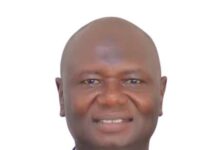By Niyi Jacobs
The Nigerian government’s claim that it has distributed N625 billion to 25 million citizens has ignited a fierce backlash, with many citizens questioning the legitimacy of the process and the identities of the purported beneficiaries. Announced by the Minister of Finance alongside President Bola Tinubu, the initiative aimed to alleviate economic hardships but has instead raised concerns over transparency and accountability.
Critics are vocal about their frustrations, asking, “Where are the 25 million Nigerians?” Reports indicate that many citizens have not received any financial assistance, leading to allegations of corruption against government officials, including Wale Edun, who has been branded a thief by detractors. The government’s assertion that many beneficiaries lack bank accounts has not mitigated skepticism; rather, it has compounded it.
With all Nigerians required to have a National Identification Number (NIN), critics argue that the government and the Central Bank of Nigeria (CBN) are legally obligated to disclose the identities of the recipients. “Without a NIN, you are not recognized as a Nigerian,” one concerned citizen stated, emphasizing the necessity for proof of fund distribution.
The discourse has also shifted to involve state governors and members of the National Assembly, as speculation grows about their potential complicity in the alleged mismanagement of funds. Observers suggest that their involvement could reveal a broader pattern of corruption within the government.
As public outrage continues to escalate, the government faces urgent demands for clarity regarding the distribution process and proof that assistance has reached those in need. The growing discontent underscores the critical need for transparency in governance, as failure to adequately address these issues could severely undermine public trust in the administration’s ability to manage national resources effectively.














